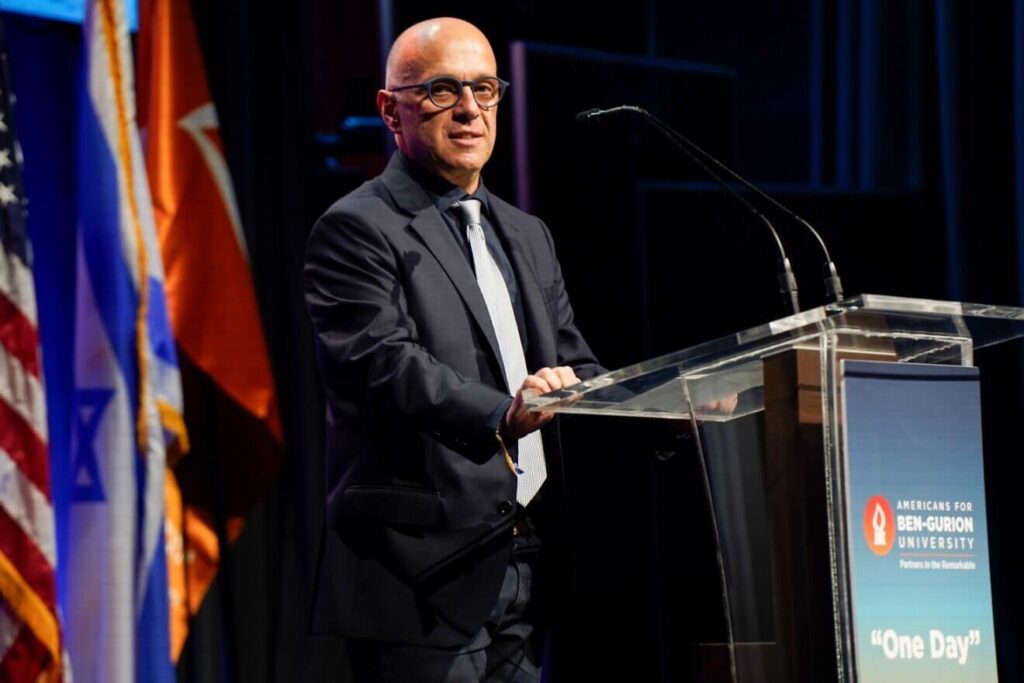
Childhood Emotional Maltreatment Causes Troubled Romantic Relationships
Childhood Emotional Maltreatment Causes Troubled Romantic Relationships
May 3, 2012
BEER-SHEVA, May 3, 2012 – People who experience Childhood Emotional Maltreatment (CEM) are more likely to have troubled romantic relationships in adult years, according to Ben-Gurion University of the Negev (BGU) researchers.
In two separate studies, doctoral candidate Dana Lassri and Prof. Golan Shahar of BGU’s Department of Psychology examined the stability and satisfaction of intimate relationships among college students with a history of CEM. The studies, published in the Journal of Social & Clinical Psychology, suggest that emotional abuse as a child impacted relationship fulfillment due to self-criticism. Participants had an extremely strong tendency to bash themselves, and this interfered with their relationship satisfaction.
The studies also revealed that some participants had symptoms of Post-Traumatic Stress Disorder (P.T.S.D.) due to the emotional abuse they endured. This could be the result of internalizing behaviors caused by the maltreatment or by a child’s inability to properly comprehend their circumstances.
Childhood Maltreatment (CM) includes sexual and physical abuse, emotional maltreatment and neglect, and is a significant contributor to the dramatic increase in referrals to university counseling centers. CM also foments self-criticism causing a deleterious effect on romantic relationships.
“Over time, this tendency might be consolidated, becoming a defining part of a person’s personality, and ultimately derailing relationships in general and romantic relationships in particular,” explains Ms. Lassri, whose doctoral dissertation, supervised by Prof. Shahar, served as the basis for the study.
Lassri believes that even though these findings were gathered from college-age individuals, the behaviors could potentially worsen throughout adulthood.
The research was supported by The Israel Foundations Trustees (Doctoral Grant No.29).
ABOUT AMERICANS FOR BEN-GURION UNIVERSITY
By supporting a world-class academic institution that not only nurtures the Negev, but also shares its expertise locally and globally, Americans for Ben-Gurion University engages a community of Americans who are committed to improving the world. David Ben-Gurion envisioned that Israel’s future would be forged in the Negev. The cutting-edge research carried out at Ben-Gurion University drives that vision by sustaining a desert Silicon Valley, with the “Stanford of the Negev” at its center. The Americans for Ben-Gurion University movement supports a 21st century unifying vision for Israel by rallying around BGU’s remarkable work and role as an apolitical beacon of light in the Negev desert.
About Ben-Gurion University of the Negev
Ben-Gurion University of the Negev embraces the endless potential we have as individuals and as a commonality to adapt and to thrive in changing environments. Inspired by our location in the desert, we aim to discover, to create, and to develop solutions to dynamic challenges, to pose questions that have yet to be asked, and to push beyond the boundaries of the commonly accepted and possible.
We are proud to be a central force for inclusion, diversity and innovation in Israel, and we strive to extend the Negev’s potential and our entrepreneurial spirit throughout the world. For example, the multi-disciplinary School for Sustainability and Climate Change at BGU leverages over 50 years of expertise on living and thriving in the desert into scalable solutions for people everywhere.
BGU at a glance:
20,000 students | 800 senior faculty | 3 campuses | 6 faculties: humanities & social sciences, health sciences, engineering sciences, natural sciences, business & management, and desert research.
For all press inquiries, please contact:
James Fattal, J Cubed Communications
516.289.1496



